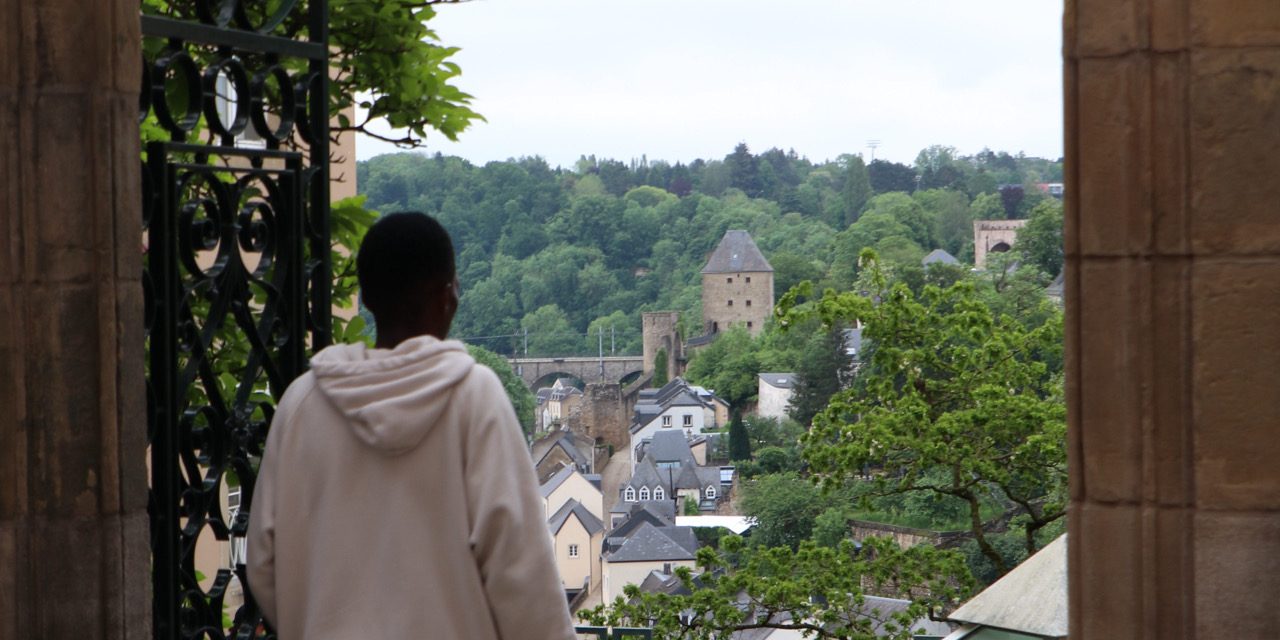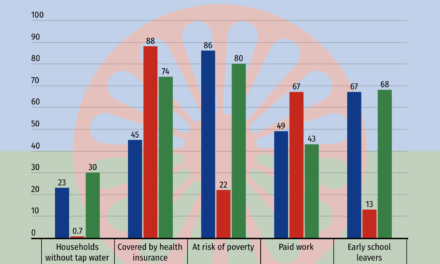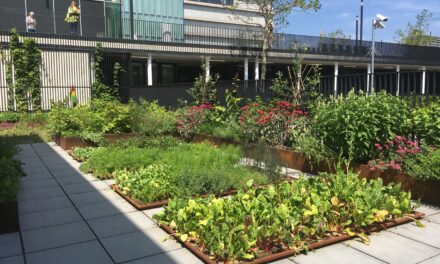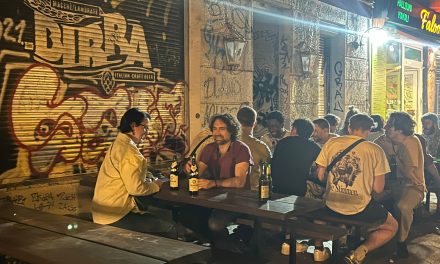Luxembourg is a small country with different cultures and beautiful scenery. In the capital city, is a combination of both French and German architectural styles due to its beige walls and medieval-looking streets. The city is surrounded by plenty of green, which you can admire when using Luxembourg’s free public transportation and travel across the Adolf bridge. However, the magical aspect of Luxembourg represents an unrealistic image as people who identify as Black or of African descent face significant discrimination in Luxembourg. A survey by the European Union Agency for Fundamental Rights found that 57 percent of this group felt discriminated against. Luxembourg’s image of social inclusion and multiculturalism contrasts with its reality, there’s little to no representation for black people despite the migration growth and financial possibilities the country has.
’’There’s no one who’s representing the Black community, population or ethnicity’’ says Jordanne Edwards.
Current situation
The European Commission against Racism and Intolerance (ECRI) has expressed their concerns about discrimination in Luxembourg, despite the progress the country has made since this issue was first addressed in 2018. In June 2020, more than 1,500 people in Luxembourg participated in a Black Lives Matter protest following the tragic murder of George Floyd by a Minneapolis police officer. The protest in solidarity with the US movement also called out racism and inequality in the country.
In response to this protest and the publication of the European Union Agency for Fundamental Rights report ‘Being Black in the EU’, Corinne Cahen, Minister for Family and Integration, held a press conference on March 8, 2022. This conference was held to release the report “Racism and ethno-racial discrimination in Luxembourg” in the presence of LISER and CEFIS representatives. Based on these results, CEFIS and LISER were asked to design a plan and formulate policy recommendations in the field of the fight against racism and ethno-racial discrimination.
ECRI notes on-going discrimination against people with an immigrant background – particularly those of African descent and Portuguese nationals – in the areas of employment, education and housing.
Challenges for Migrants in Luxembourg
On the 4th floor of the University of Luxembourg is a long hallway that’s divided into small office rooms with a coffee corner at the end. Different types of researchers and people are working in their office. Jordanne Edwards is a Doctoral Researcher at the University of Luxembourg studying Social Work. She is a Jamaican woman and has traveled to several different countries to follow her dreams. At 19 years old, she went on an exchange year in Canada while pursuing her bachelor’s degree. After that, she spent a few years back in Jamaica before deciding to continue her education further in Europe, by enrolling in a two-year master’s program in Advanced Development in Social Work in the Netherlands. Jordanne eventually moved to Luxembourg in 2021 to pursue a PhD and has been there ever since. She comfortably sits down at the big table in the middle of a meeting room, down the hall, with a smile on her face.
Language barriers
Jordanne relates to the migrant community in Luxembourg on both a professional and personal level. ‘’Migrants who come in do not have the right to vote. They can vote on a communal level, but not at the national government level. You don’t have the right to vote until you become a citizen. And for all government positions, or at least most of them, you must speak all of the official languages. Which means German and French, but Luxembourgish as well.’’ She explains and adds that: ‘’We see that people of color are so underrepresented in the government space’’. Referring to situations in which favoritism took place e.g. a white person, with the same or a lower skill set than a black person, would be more likely to get accepted for a certain corporate position if this person is e.g. from the same area as the white person. However, when the roles are reversed favoritism is less acceptable because of the fear of non-Luxembourgish speaking people of color, being accepted for a job that they ‘’can’t handle’’ simply because they’re from the same country as the person of color who’s conducted the interview. Unfortunately, there is limited specific data on the underrepresentation of black people in governmental positions in Luxembourg. However, the recent coalition government formed in November 2023, led by Prime Minister Luc Frieden, comprises a diverse group of ministers from the Christian Social People’s Party (CSV) and the Democratic Party (DP), but there is no specific mention of black representation among these members.
Another challenge is the fact that ‘’There’s no one who’s representing the Black community, population or ethnicity’’ she says. Jordanne believes this is one of the biggest issues in Luxembourg and finds it to be a ‘’Massive disparity’’ in contrast to the changes the Luxembourgian government said they wanted to make. ‘’It all comes back to the marketability of how diversity is talked about in the country and the implicit silencing that goes into it.’’.
Financial barriers
According to the EUMC, although data sources are extremely scarce, it is very difficult for poorer migrants to find decent affordable housing due to an extremely expensive rent sector, and overcrowding has been identified in refugee centers. Prince Gharbin, a Ghanian national who is the chairman of the Doctoral School of Science and is an engineering PhD student, personally dealt with these difficulties ‘’I’ve had a few interviews for housing before. And what became very clear in the conversations that in Luxembourg, they really care about people speaking their language, or at least one of the languages.’’. Therefore, people of color that left their country for better living conditions who want to become permanent residents in Luxembourg won’t stand a chance to get a house soon. Non-EU citizens who want to stay longer than 90 days must apply for a temporary residence permit before entering Luxembourg. The temporary residence permit is valid for one year and can be renewed. It also serves as a work permit, if applicable. Non-EU citizens must meet certain requirements, such as having sufficient financial resources, health insurance, and accommodation. They must also pass a medical examination and a language test.
Discrimination in the educational field
In the educational field of Luxembourg, foreign national students represent 42 percent of the school population. According to the European Network Against Racism, only 20 percent of them successfully pass their final secondary exams, which is attributed to the high proportion of placements in ‘special’ schools or being pushed towards a vocational education instead.
In Luxembourg’s city center stands the building of the Ministry of Education. The building is hard to miss due to its size and has a two-way-entrance. Antonia Ganeto, Adviser on Intercultural and Anti-racist Education within the Ministry of Education, sits in her office on the fourth floor that she shares with her co-worker, a white man. According to Miss Ganeto there’s quite a ‘noticeable class indifference’’ stating that ‘’There are many people with migration backgrounds who come from more vulnerable social classes. If they also don’t speak the necessary languages, such as Luxembourgish, German, French, or English, they don’t have a very good chance to succeed in school.’’
Furthermore, it can be difficult for a person of color to be the head of a team, for example, since they have difficulties with authority due to their white group members’ reluctance to listen or not acknowledging the person of color as someone with a higher status. Miss Ganeto explains, after describing this phenomenon, that she can emotionally relate to this is issue as she witnessed discriminatory expressions during her work in the educational field. “Throughout my 30-year career, which includes working with children at various schools, I have had, I don’t know how many occasions where I have arrived at a location and been treated differently. My colleague is more warmly greeted than I am. For a long time, I was the head of my department, yet I was never recognized or treated as such.’’.
Luxembourg City vs. Esch
The capital of Luxembourg, Luxembourg City, is home to more than 114.303 people. The city has broad streets and a nice blend of natural and architectural elements. The city has a wide range of stores and is quite diverse. While walking through Luxembourg’s alleyway, it was noticeable that people of color from all ages were walking around. However, there were few black owned shops to be found, which is an important aspect of underrepresentation in Luxembourg.
’’The majority of black people live in Esch due to the history of the steel industry and factories in the area. A large number of migrants arrived from Italy and Portugal. The Cape Verdeans arrived as a result of the Portuguese, and more and more black people followed. Which is why I enjoy living in Esch, where many of the racialized population lives.’’ Says Jordanne. The greater number of persons of color and the stores owned by black people made Esch stand out from Luxembourg City. Despite the lengthy and wide avenues, there is a sense of community. Regretfully, the stores were closed on Saturday, but the cafés remained open. Men from ethnic backgrounds such as Portugese and African are seated outside in groups, sipping drinks as the sun shines. Jordanne’s love for the city was instantly understandable.
Esch’ demographics reflect a diverse population with 57 percent being foreign inhabitants from 130 nationalities, and half border workers. It is a veritable breeding ground for a rich cultural sector. Furthermore, Esch was the European Capital of Culture in 2022, and as a leading city under Agenda 21 for culture, Esch promoted creative culture as a pillar of the socio-ecological transition.
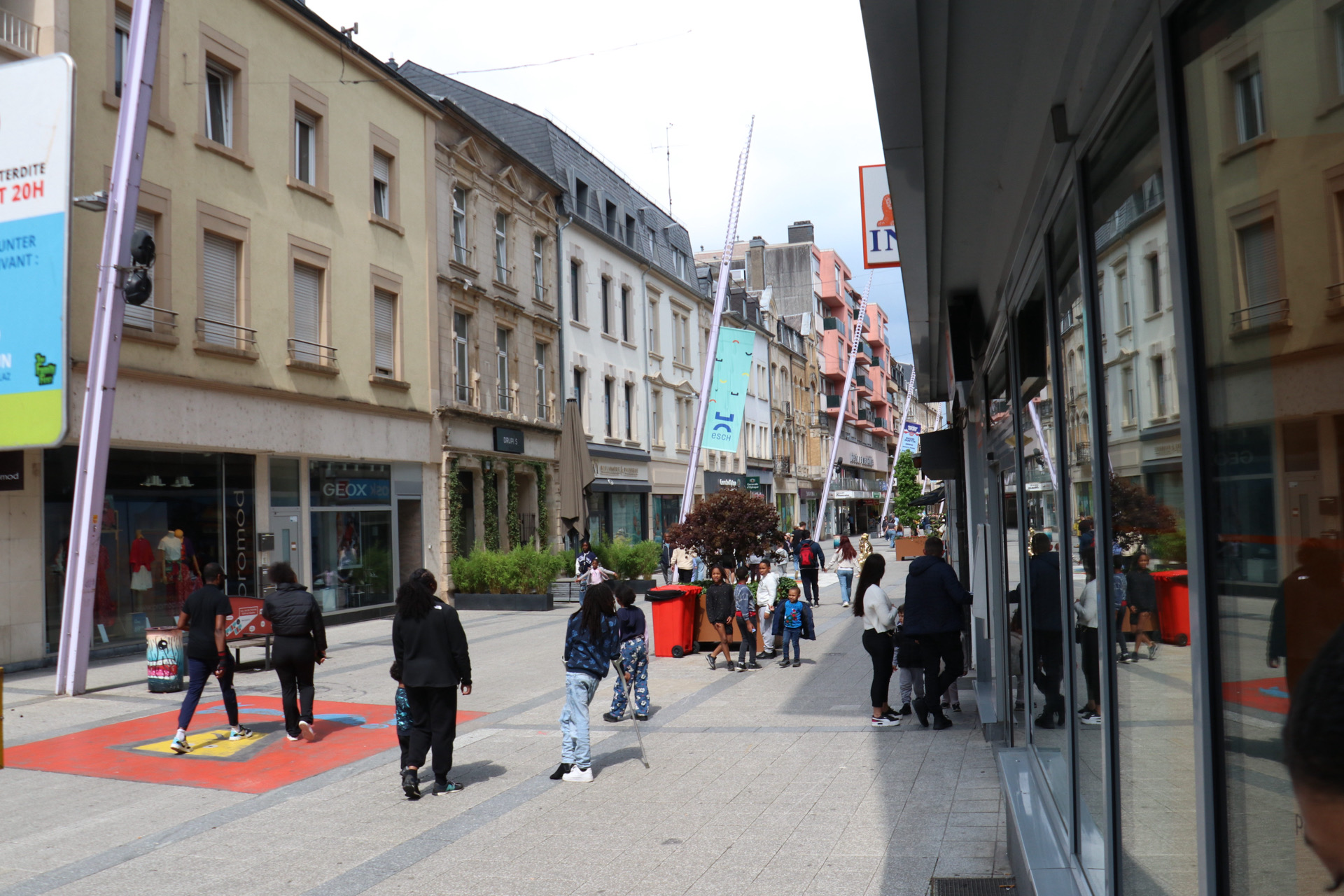
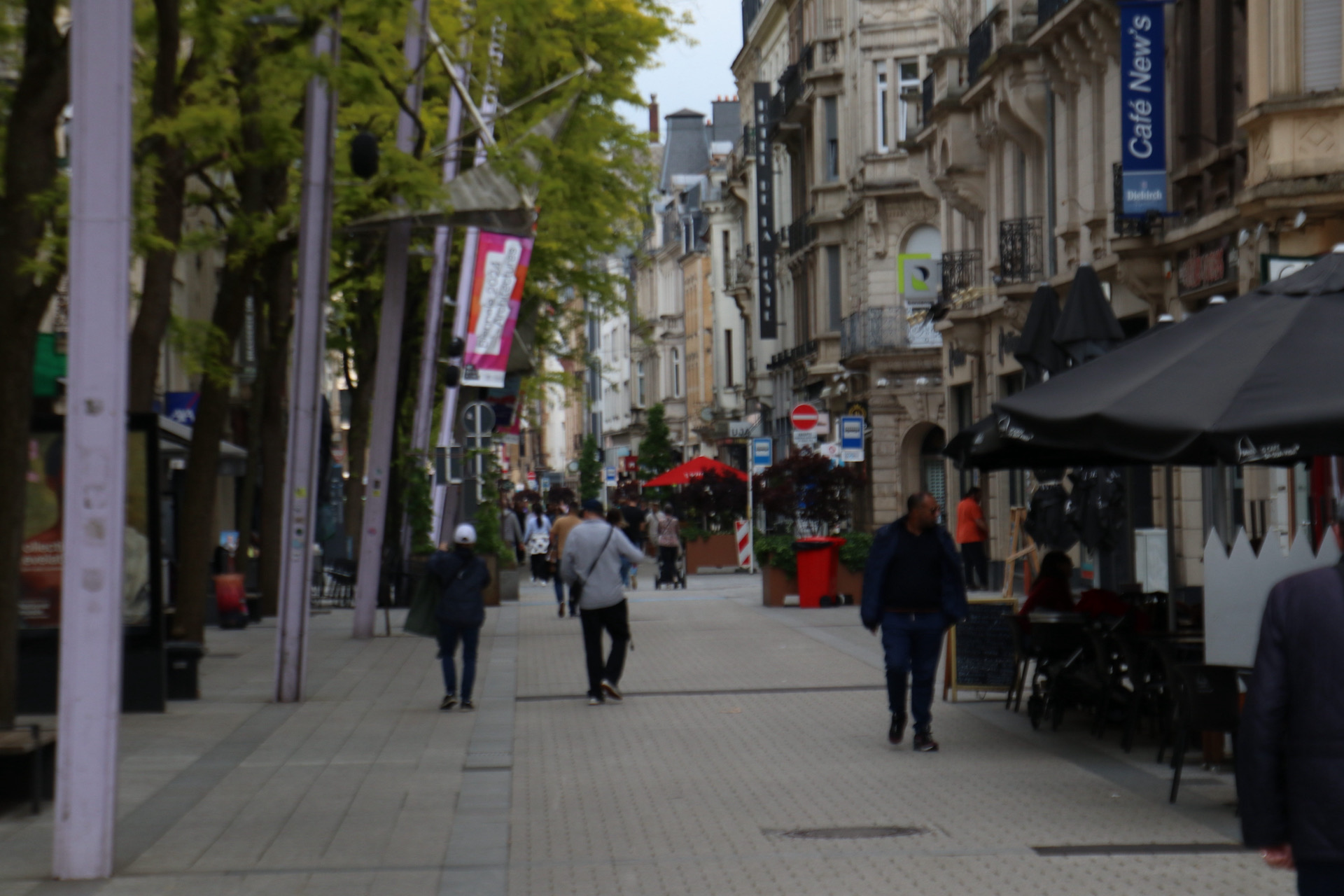
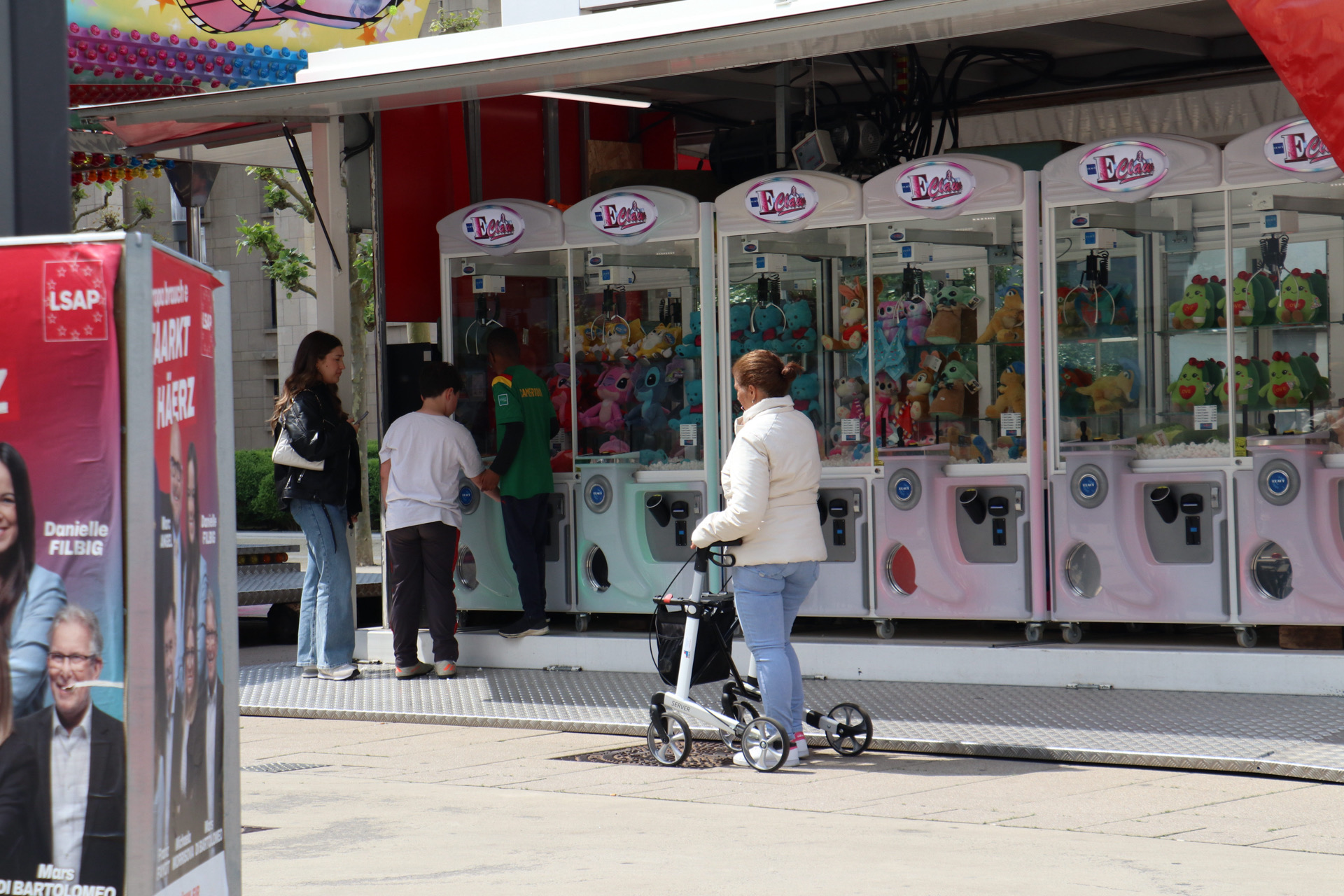
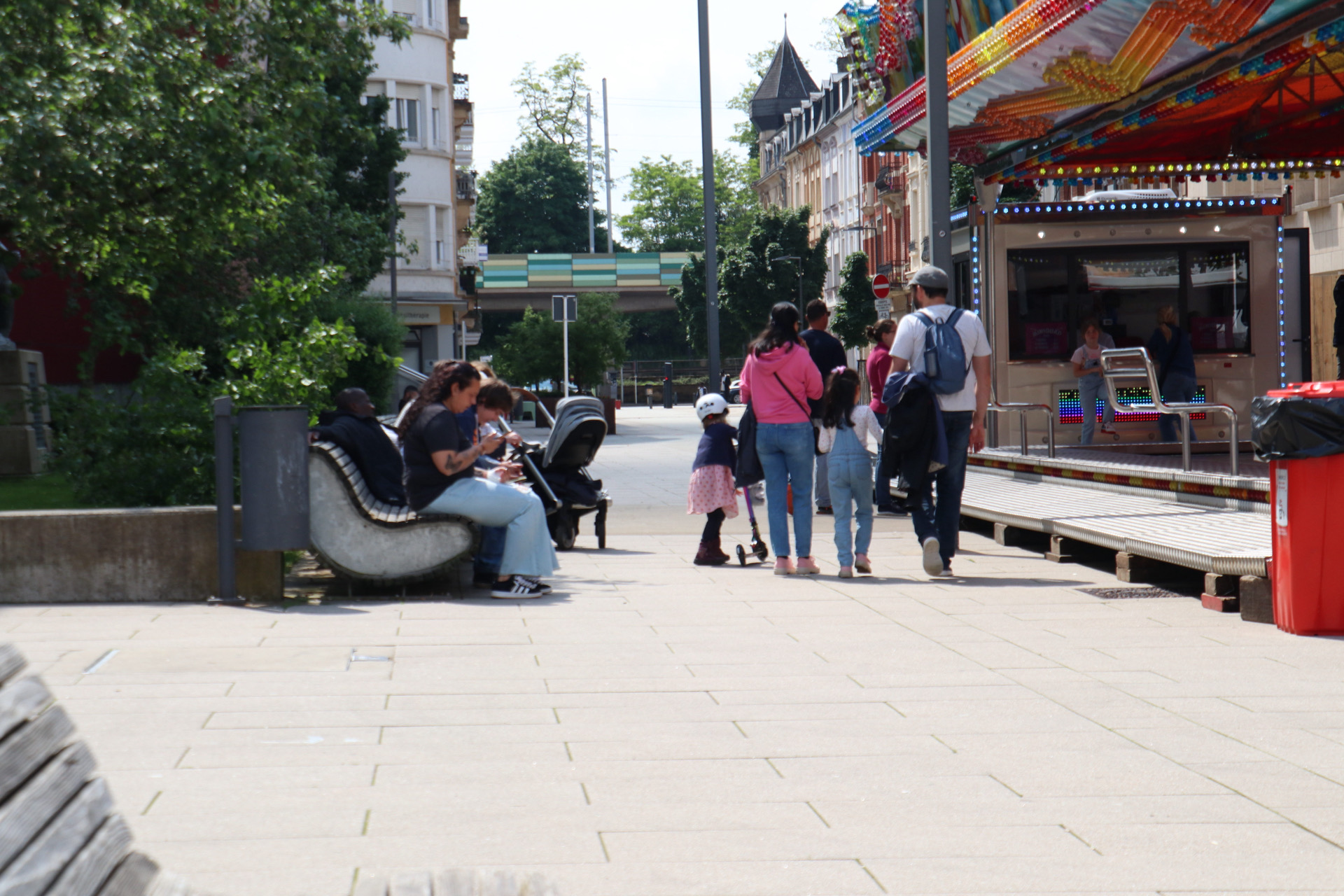
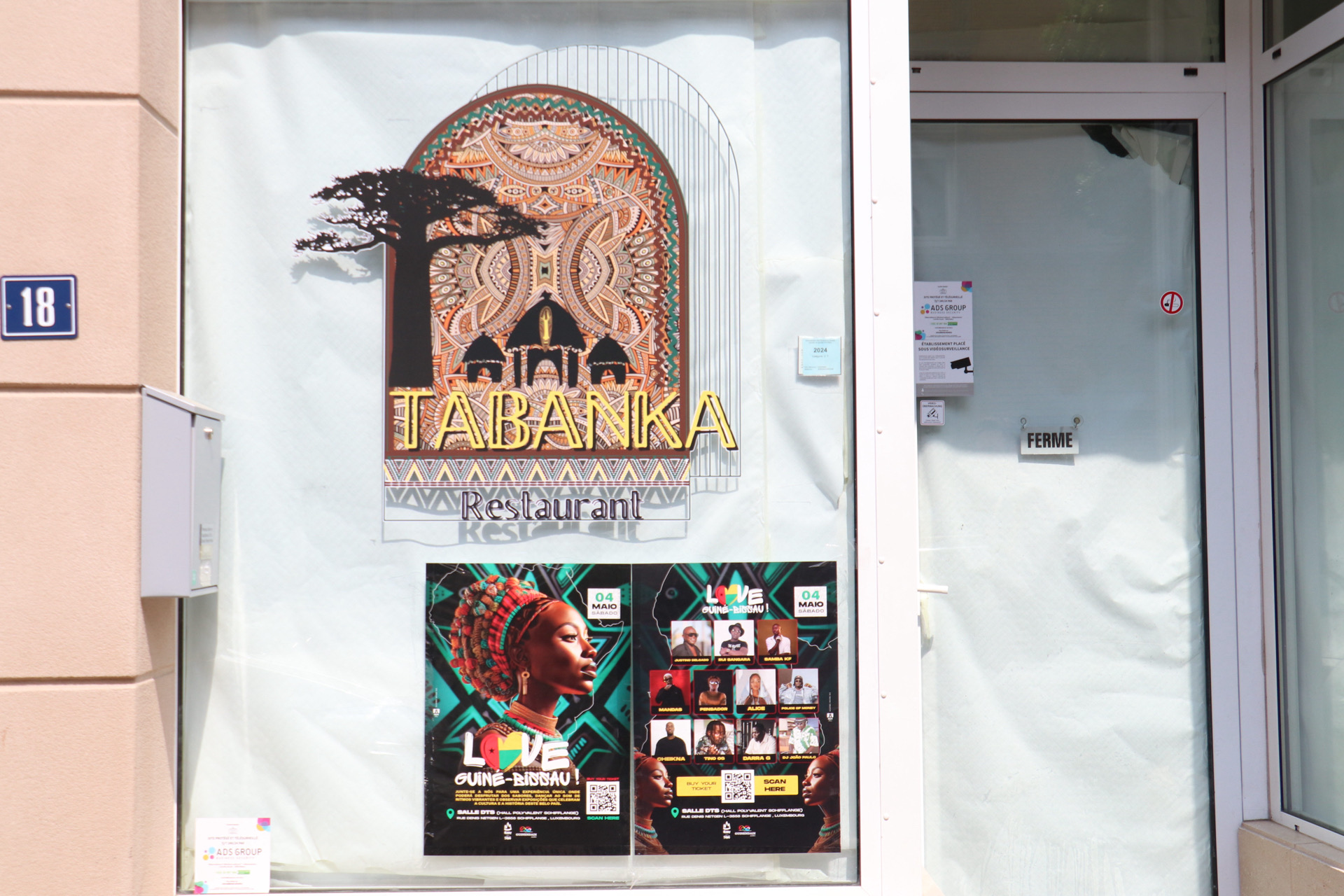
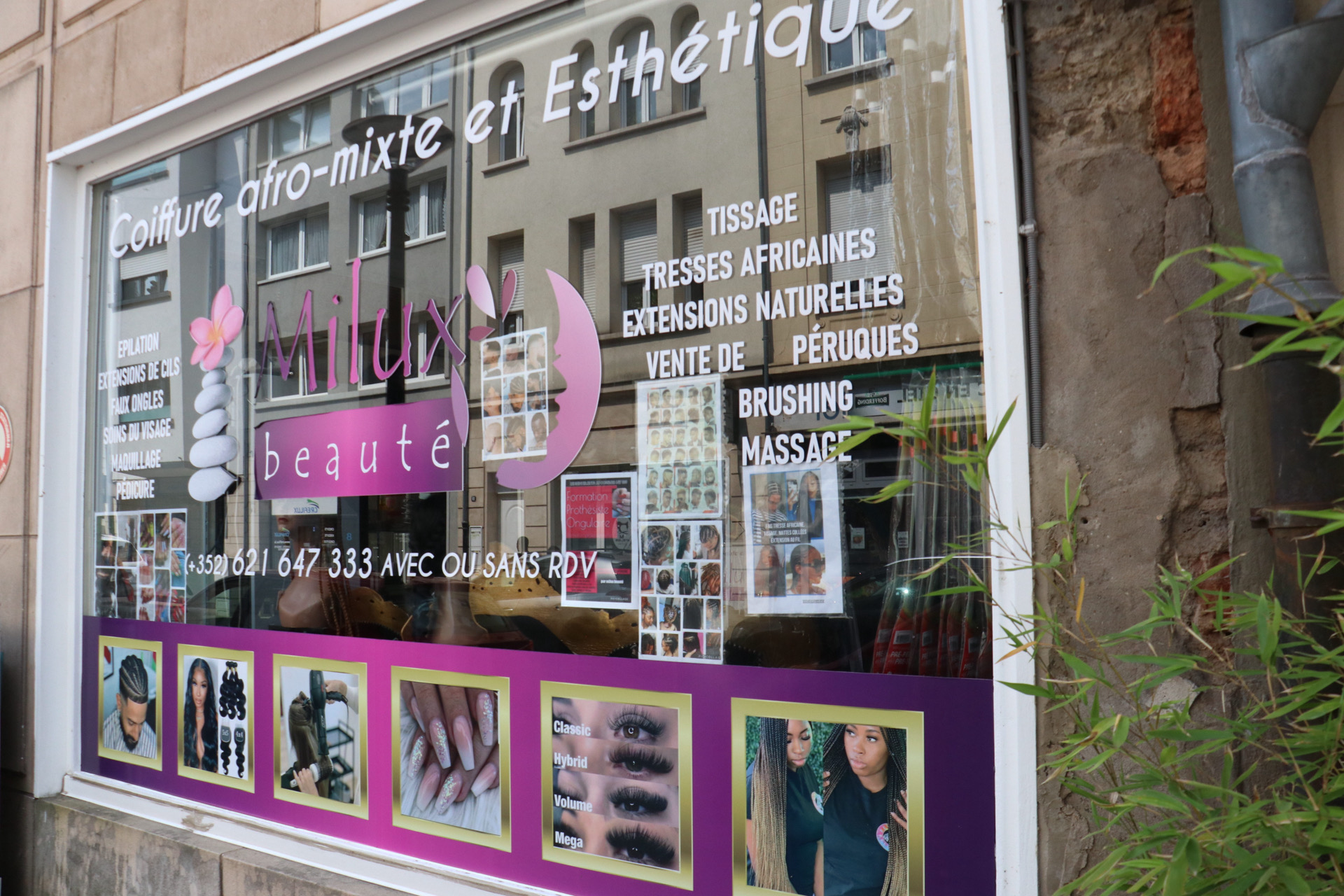
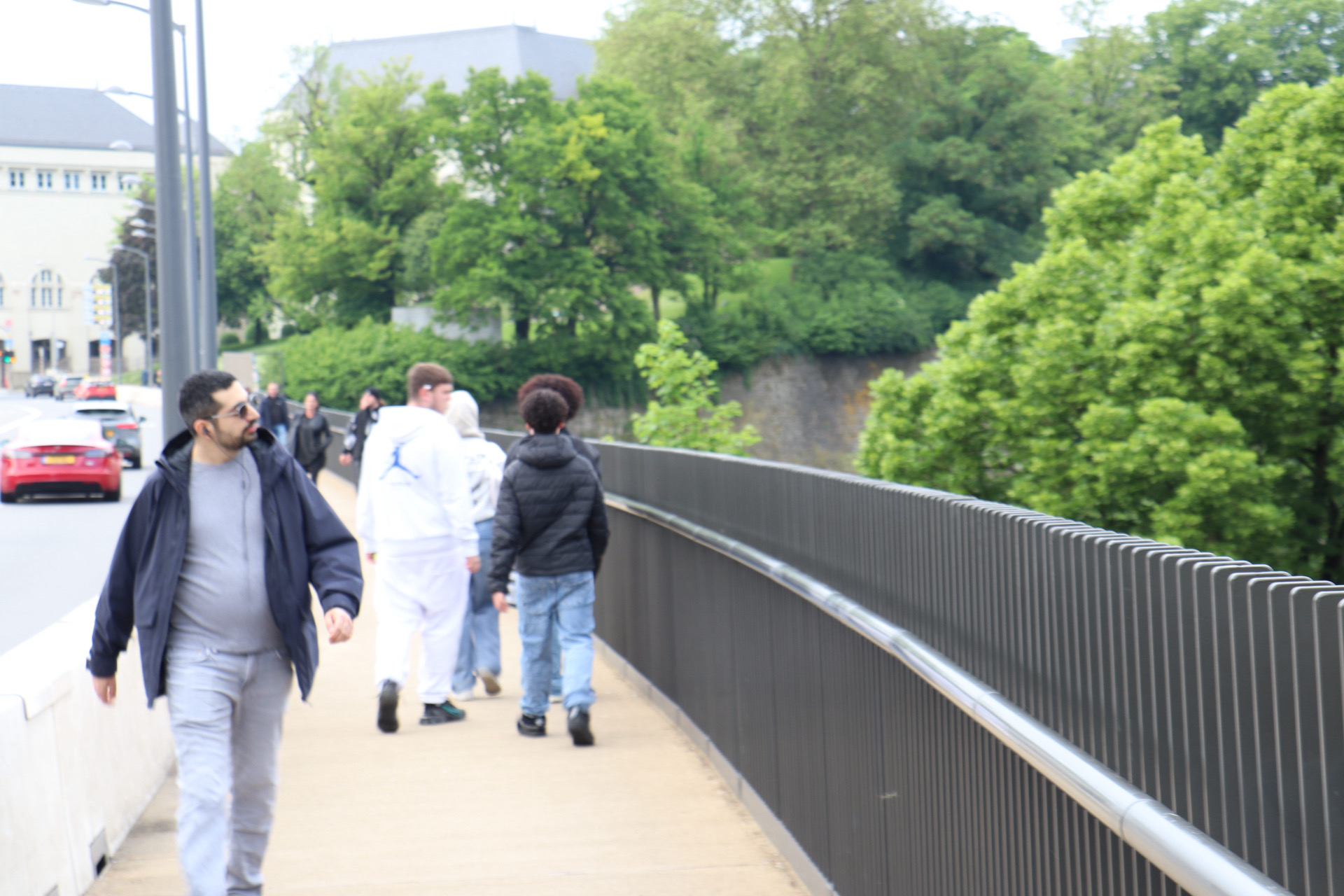
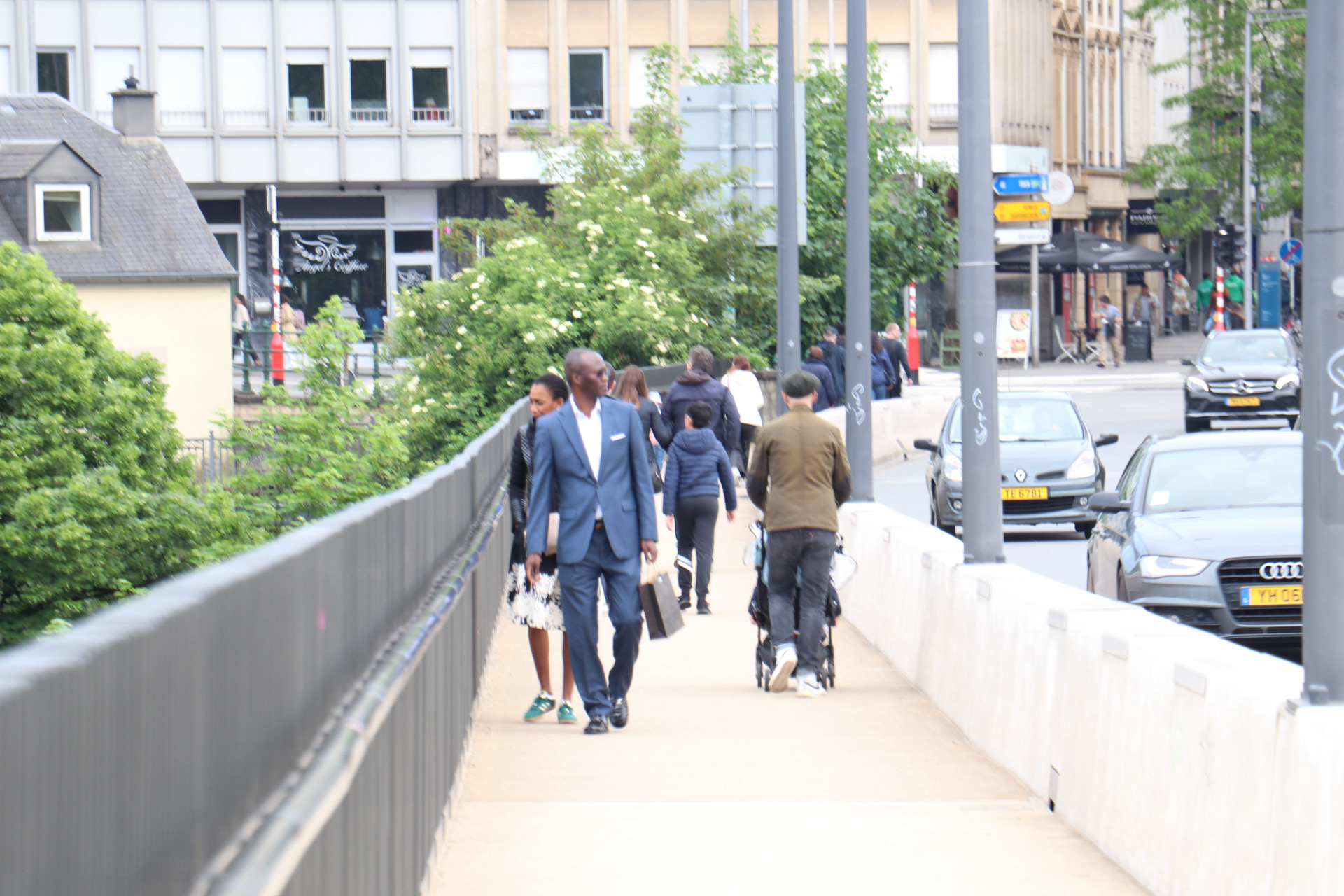
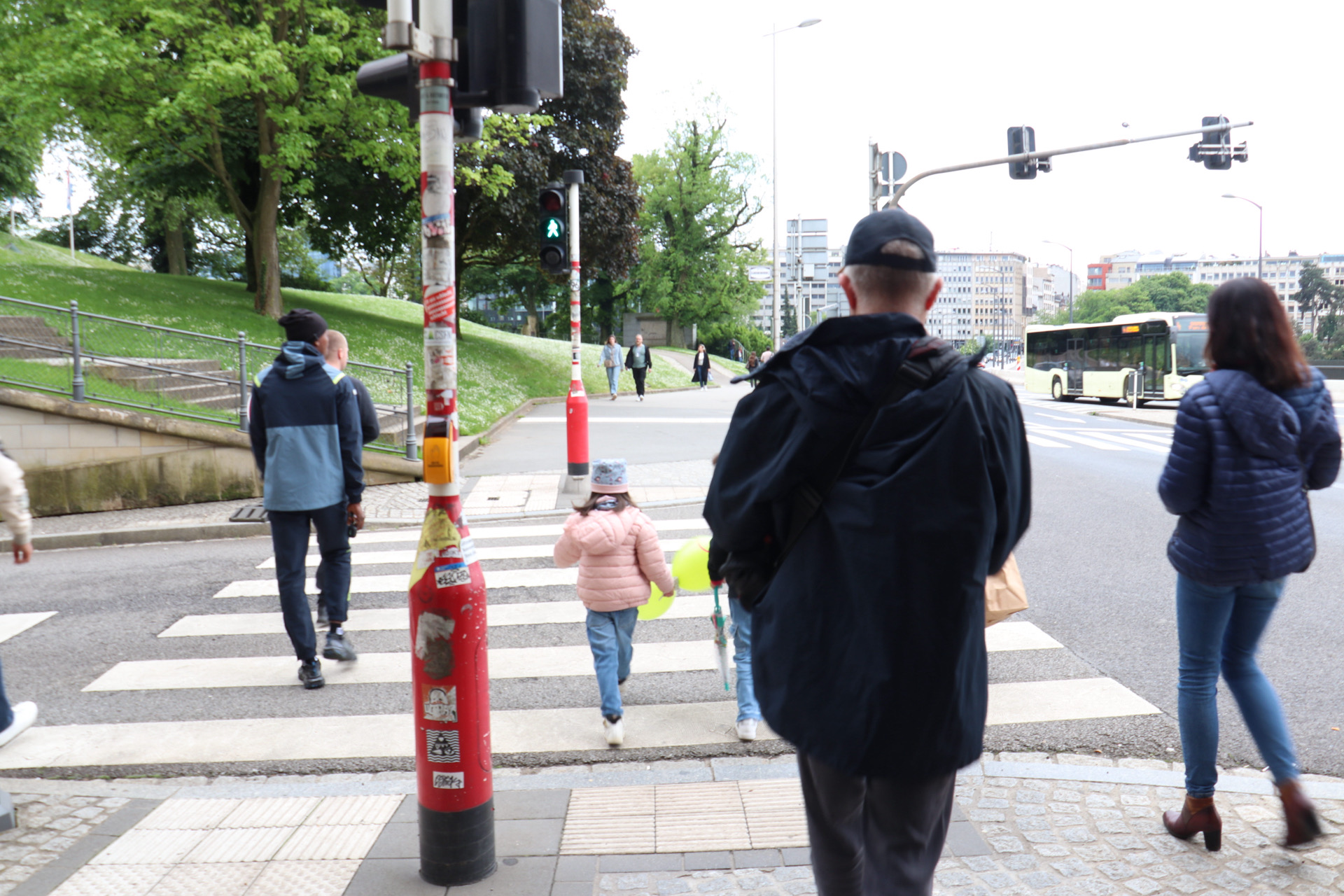
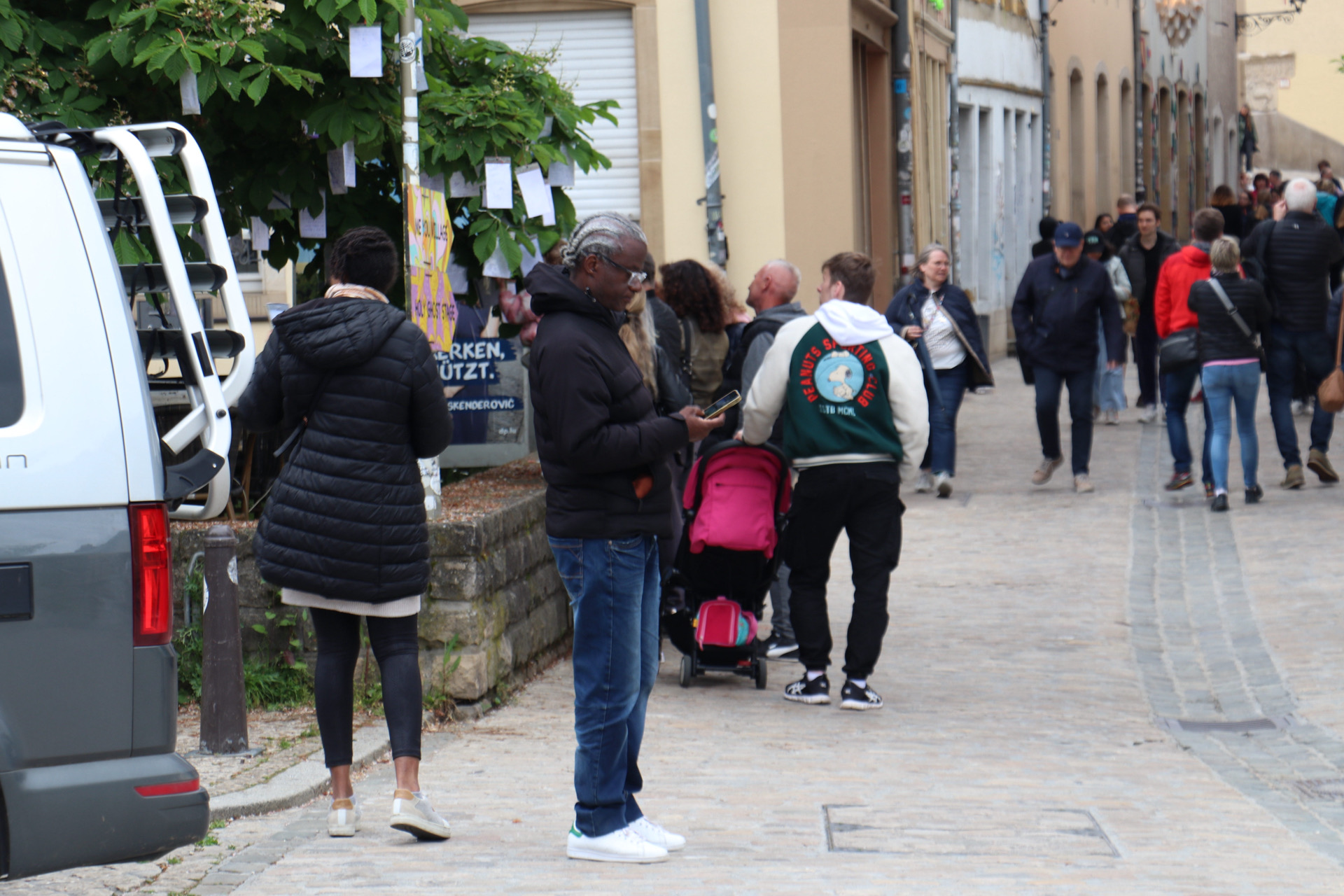
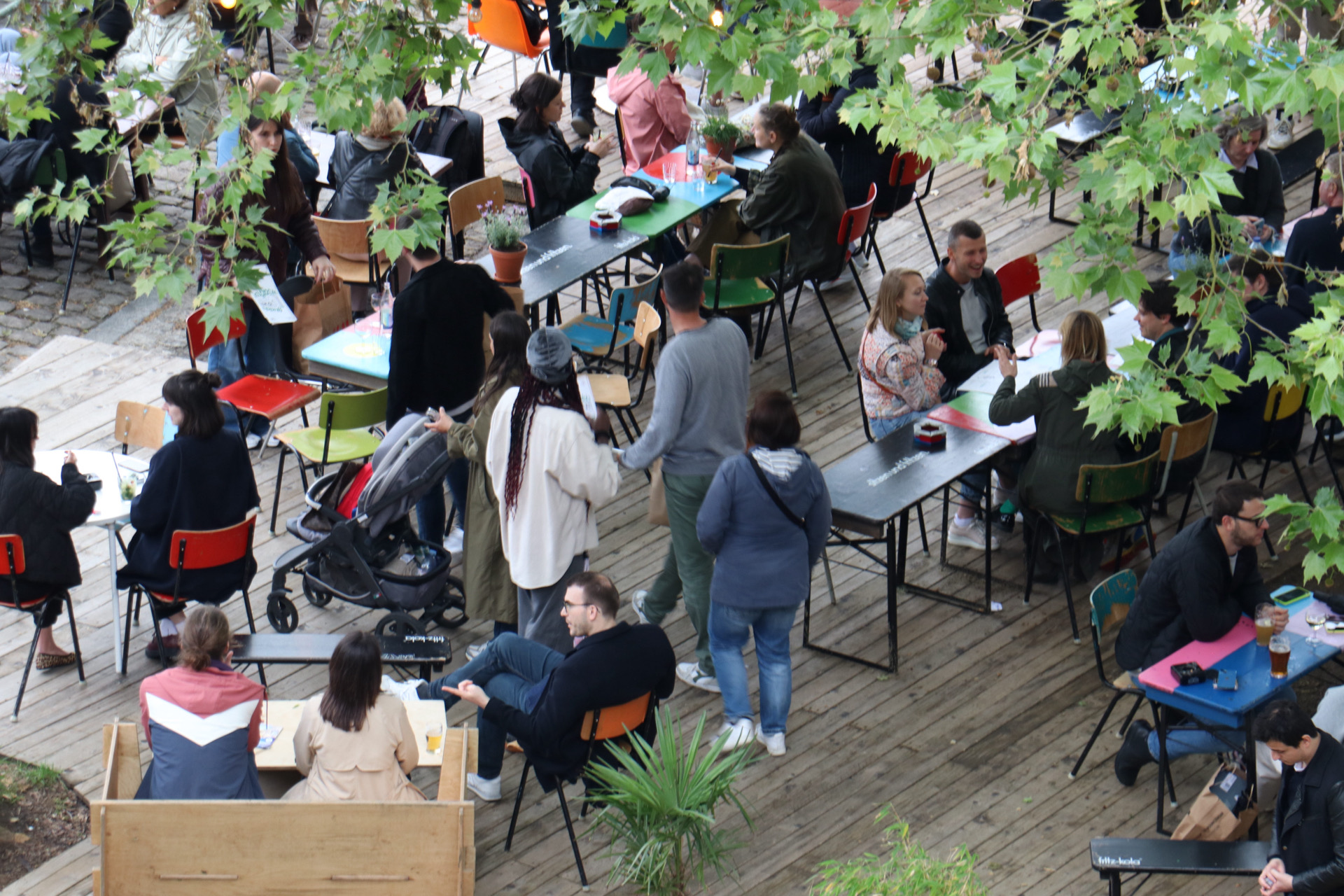
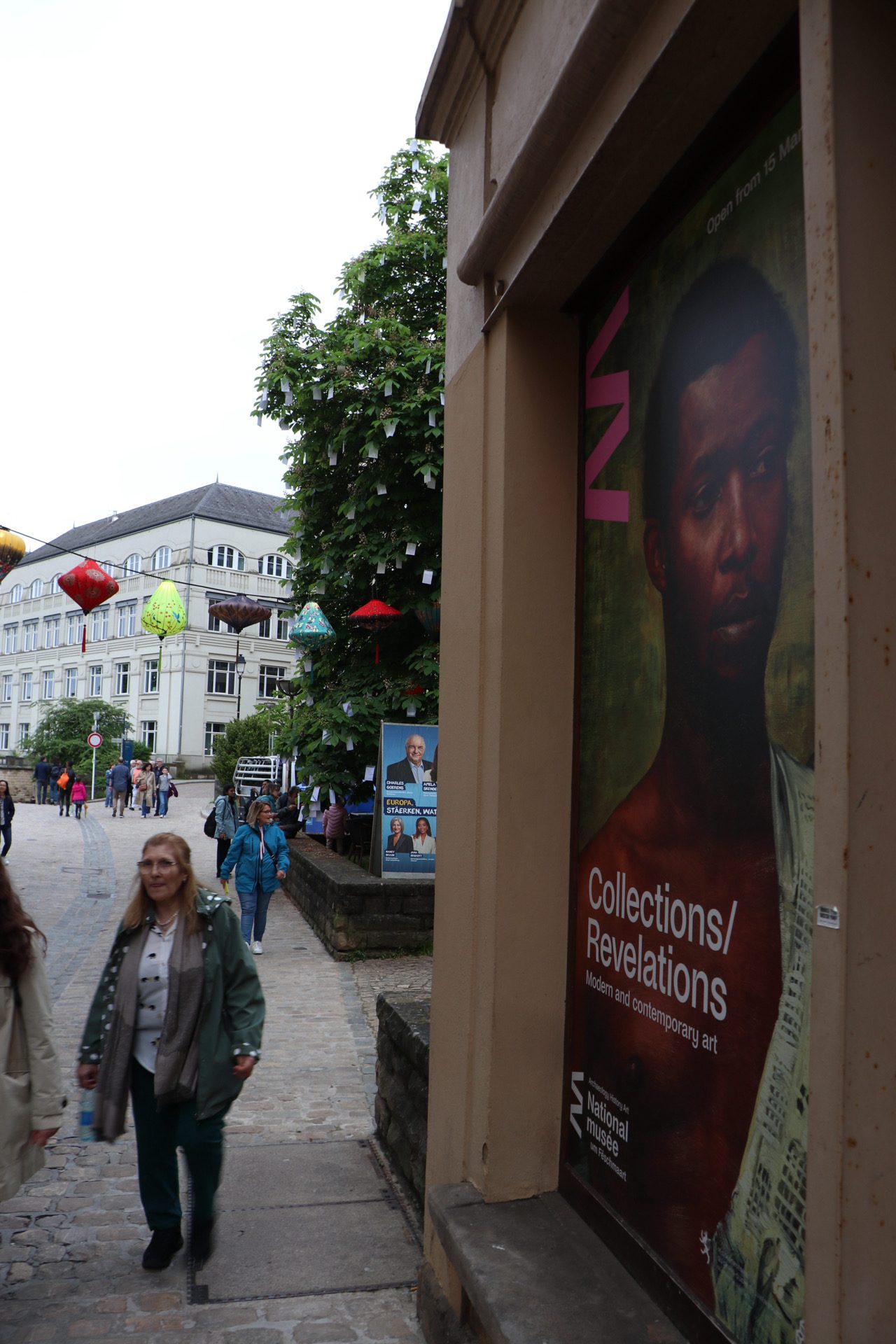
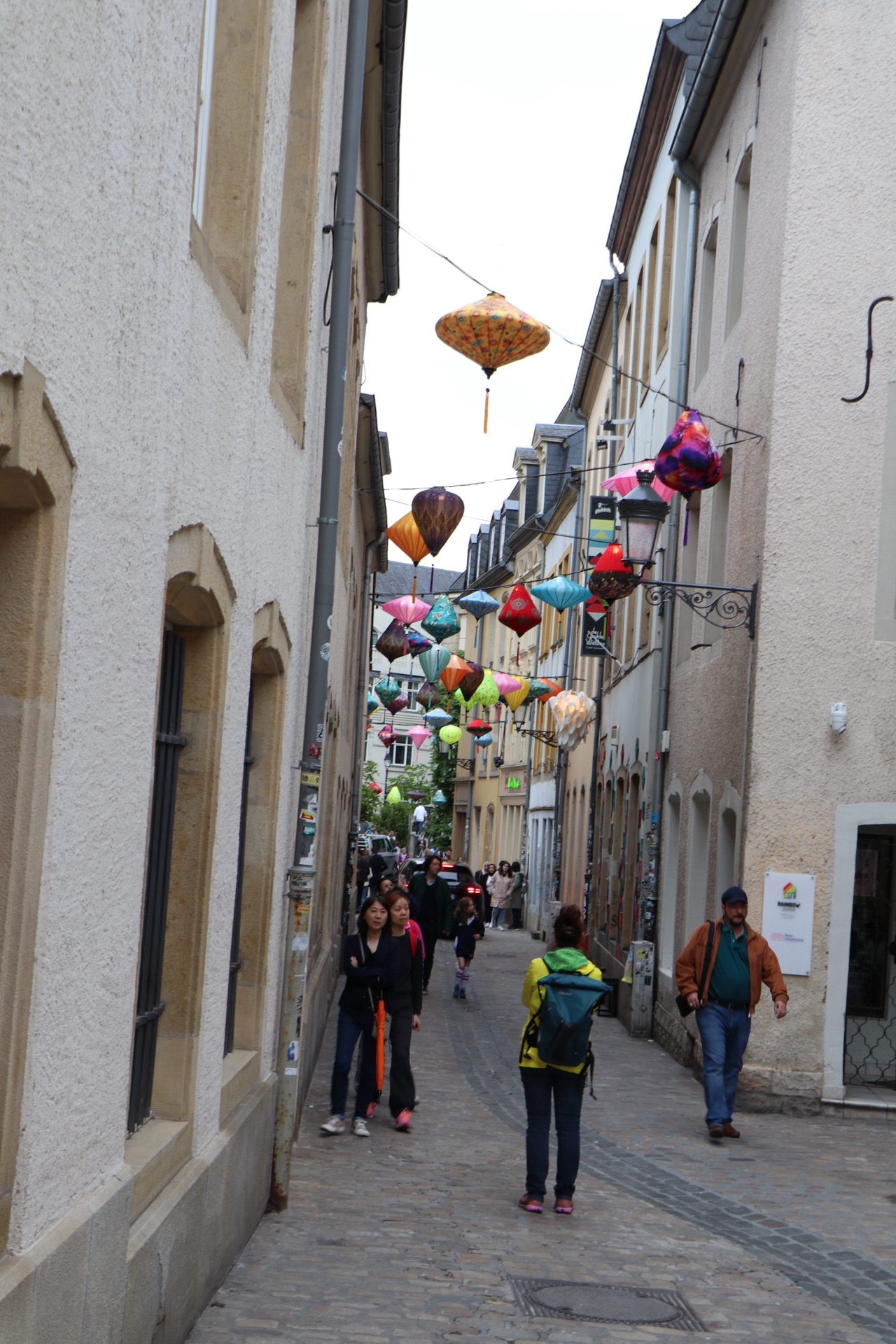
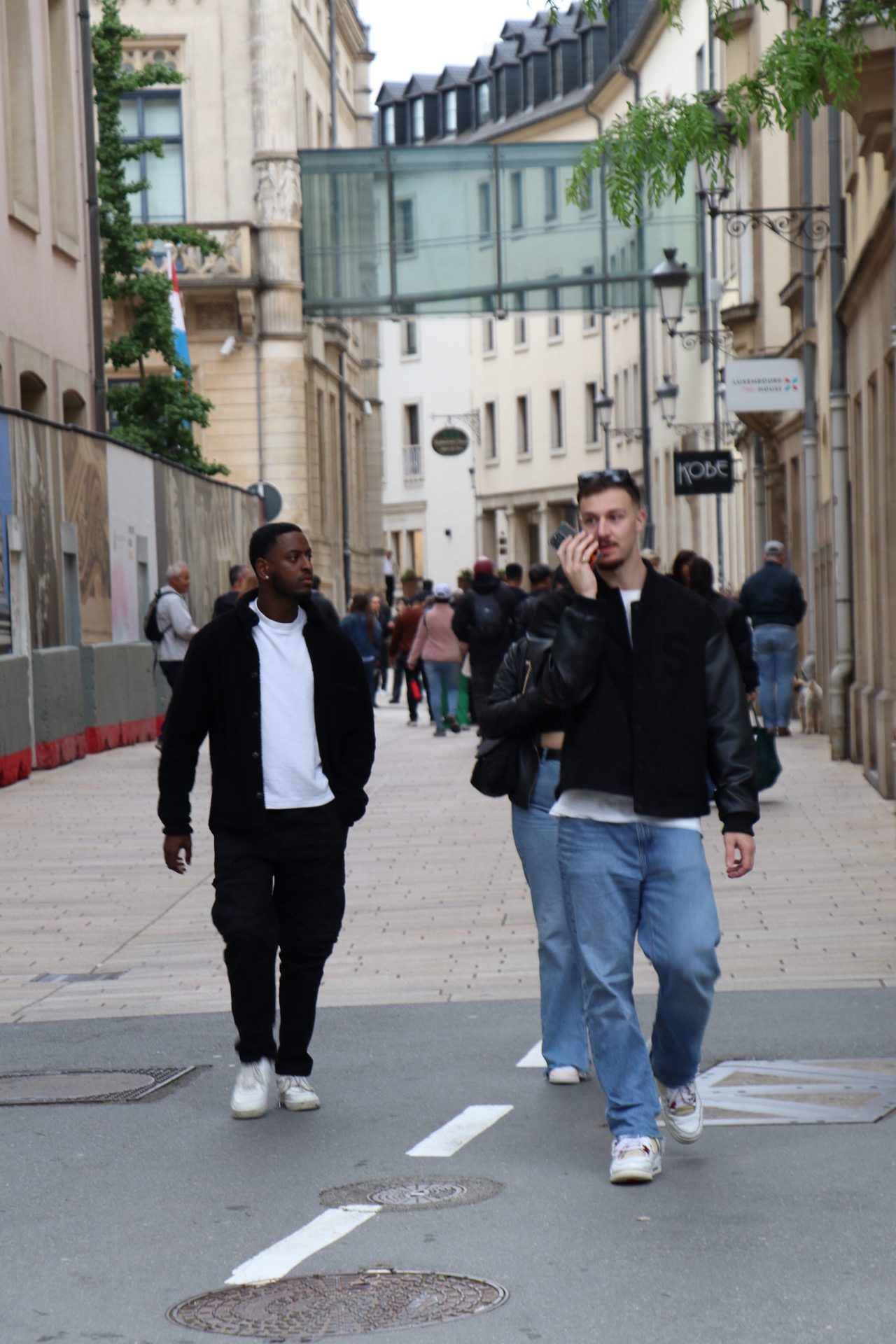
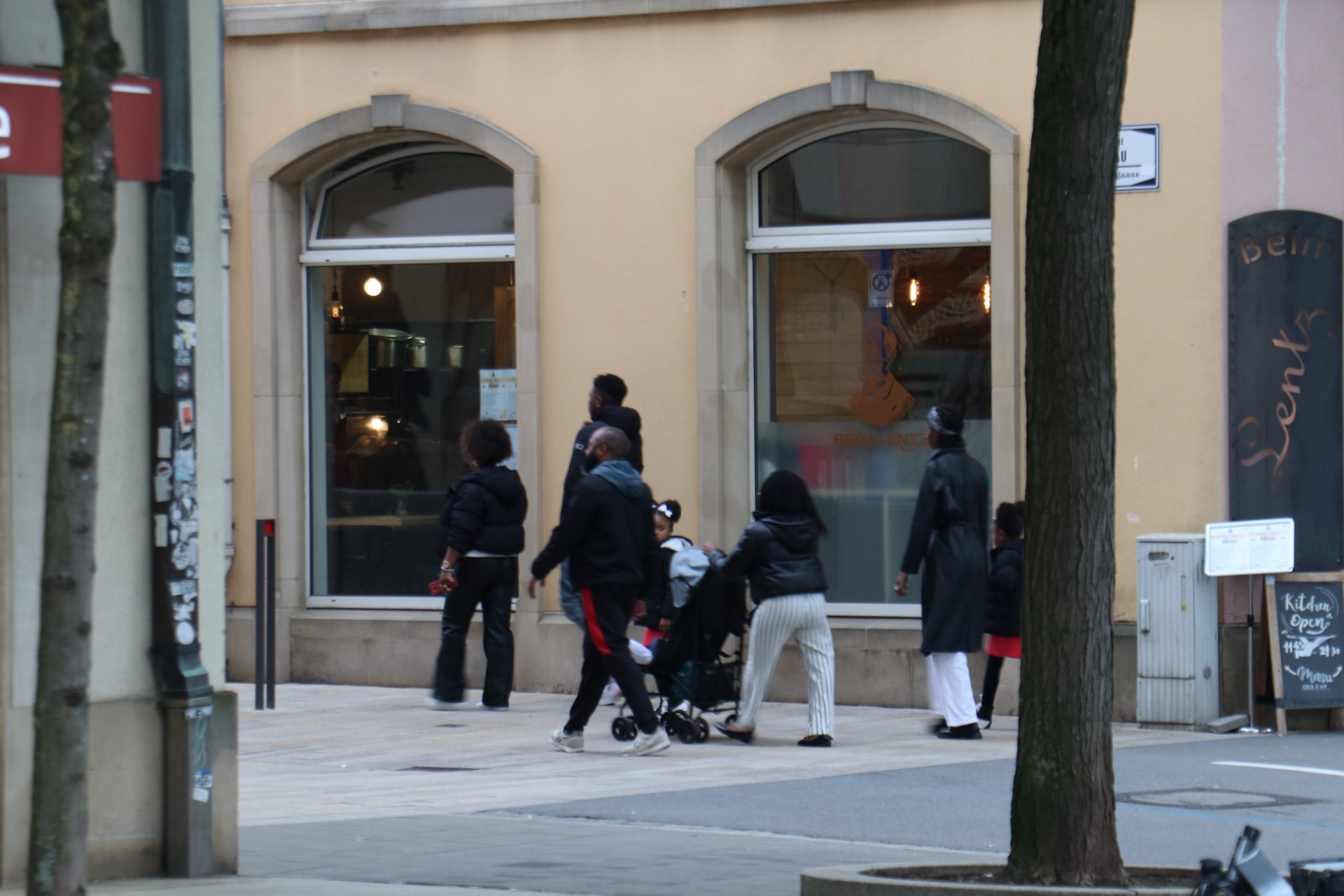
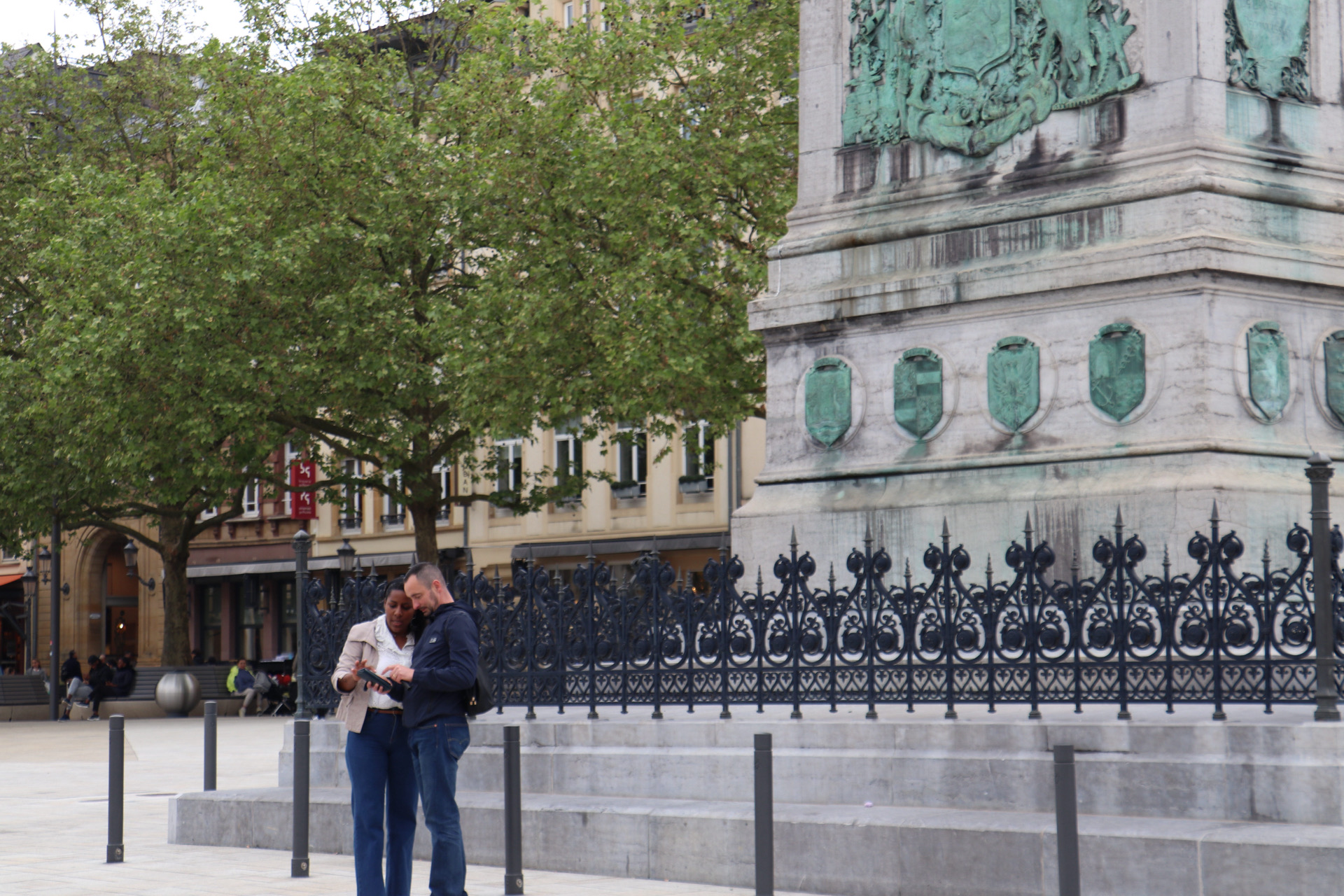
Streetview of Luxembourg City and Esch
Let’s Rise Up
Sandrine Gashonga who was born in Rwanda in 1977 and came to Luxembourg as a refugee in 1997 has a passion for human rights, and immersed herself into activism in 2013, volunteering for Amnesty International in Luxembourg. Additionally, she dedicates her life to encouraging cross-cultural communication and acceptance, as well as opposing all types of discrimination. Let’s Rise Up is an organization that supports this matter. ‘’I founded Let’s Rise Up in 2019 with five other friends of mine. We were six racialized women’’ Sandrine explains.
She mentions that with Let’s Rise Up they intend to organize activities and develop strategies inspired by their experiences as racialized women in Luxembourg. ‘’We are currently participating in two European Erasmus Plus initiatives. The first project aims to create instructional tools for youth professionals working in the field of sexual education, and it is scheduled to finish in July of this year. The second project, which began in February, aims to generate teaching tools with the intention to combat internalized racism among young adults in Luxembourg’’.
Different opinions
In the big, lobby of Hotel Sofitel in Kirchberg there is a calmness in the air. Rays of sunshine shine through the glass roof and in the background, people are having lunch at the hotel’s restaurant while having soft spoken conversations. Sandrine Lingom, and one of her cooks from France, walk into the lobby and take place at a round table just near the entrance of the little café. The bartender asks them what drink they prefer, and they both order an orange juice.
Some individuals don’t believe there is discrimination in Luxembourg or a so-called sweeping-under-the-rug mentality, and some individuals tend to focus more on their own lives and dreams instead of focusing on being affected by discrimination. Sandrine Lingom finds herself more in the latter . Sandrine is originally from Cameroon but was raised in Germany. She moved from Germany to Luxembourg around 7 years ago. She got her Bachelor, and later her master’s in law with a specialization in taxation and accounting at the Wiesbaden Business School. She’s the proud founder of O2Continents. Through the culinary arts, O2 Continents promotes cultural diversity, which means that they utilize the culinary arts as a tool for promoting black cooks.
She mentions that, from her personal perspective, it all depends on a person’s mindset and social interaction. ‘’If an adult, due to the way they have been taught and the way they accept and internalize those teachings, decides to reject others because of their skin color, I cannot make that my problem.’’ She adds on that ‘’This is their journey. They have the right to live their journey as they want. If they want to think the way they think, at home without harming anybody by that, but just thinking and having that mindset, it’s fine by me, you know.’’.
However, the racialized communities in Luxembourg do not always share the same opinions and won’t always collaborate for the same cause. Jordanne Edwards mentioned that, partly due to her work in the Social Work field, she has seen situations in which this was the case. ‘’I have noticed tensions within the racialized community here, which I guess happens in every Black community. These tensions reflect the ideological and political differences within racialized groups. Some individuals believe that their proximity to whiteness will save them.’’.
Sandrine Lingom confirms and specifies this aspect of the black community in Luxembourg as she mentions ‘’In most cases, there’re two kinds of people who don’t want to talk about racism. It’s, parents and grandparents who are first generation migrants since they just want to be integrated and don’t see the point of a hassle or protest. The other type is the young generation, because they refuse to acknowledge present day discrimination. This could be partially due to being exposed to increased emphasis on fighting racism through social media, which doesn’t necessarily proclaim reality.’’
Luxembourg’s future perspective
Despite portraying an image of inclusivity, discrimination in Luxembourg was established and arrested for the first time in 2018. People are fighting for this issue to be solved but unfortunately, it’s a complex framework. There are several challenges that people of color deal within Luxembourg. Challenges include language barriers, financial difficulties in securing housing, and educational inequities, which limit opportunities for Black residents. In order to combat these challenges, Luxembourg could implement a variety of strategies and take certain measurements, such as:
- Enforce Anti-Discrimination Laws: Strengthen and enforce policies against racial discrimination in all areas, including employment and housing.
- Promote Language and Cultural Integration: Offer programs to help migrants integrate, reducing societal and workplace barriers.
- Support Economic and Political Representation: Increase support for Black-owned businesses and representation in media and politics.
- Enhance Community and Educational Resources: Establish support networks and ensure equal educational opportunities for all students.
By implementing these measures, Luxembourg can move towards a truly inclusive society. Furthermore, these measurements can enable people of color to obtain more representative positions in Luxembourgian society.
